BYO Lunch. Join the staff of Rushton Farm for an in-depth talk about the planning and planting process at Rushton Farm. Fred De Long, Director of the Community Farm Program at the Trust, will talk about seed selection, crop rotation and planning, and how agroecology informs the layout and structure of Rushton Farm. We will walk across the fields to the greenhouse to see this year’s newly planted seeds, so please bring your own lunch and dress for the weather.
Sustainable Cooking in the Off-Season: Preparing Soups & Stocks
Sustainable Cooking in the Off-Season: What to Cook While the Rushton Farm Fields Are Dormant
Come sharpen your culinary skills while we wait for the spring thaw, with a series of classes that focus on basic techniques. Classes, which are all BYOB, will explore preparing stocks and soups (February 12, $75), using different cooking methods, including braising, pan searing, roasting and steaming (March 5, $75), and creating classic sauces (March 18, $75).
February 12, 6 – 8 pm, $75
Discover the basis for delicious soups by learning to prepare basic, deeply flavored vegetable & meat stocks. We will then use our Easy Vegetable Stock & Roasted Chicken Stock to make Tuscan Farro & Bean Soup, Creamy Leek & Parsnip Soup with Rye Croutons, Chicken Soup with Orzo & Dill.Please note: final menu subject to change.
Sustainable Cooking in the Off-Season – Knife Skills
Chef Donna Laveran of Lazy Susan Kitchen is back! As we await the spring thaw, let’s sharpen those knife skills and learn the fundamentals of preparing fruits and vegetables, using chopping, dicing, slicing, and julienne techniques. We’ll prepare a meal, to include salad, soup, and dessert, with a focus on local and sustainable ingredients. Please note: because this is a hands-on class, we are limited to 12 guests, who should each BRING YOUR OWN CHEF KNIFE so that you learn with a knife you know.
This event is a BYOB event, so please bring any spirit you would like to enjoy! There will be non alcoholic beverages available.
To ensure the safety of our staff, partners, and attendees we are requiring that all attendees be fully vaccinated against Covid-19 before attending this event. If you are feeling unwell or experiencing any Covid-19 symptoms, please stay home and stay well. Thank you for helping us keep our community safe.
Questions or dietary restrictions? Please email events@wctrust.org
Community Supported Avifauna
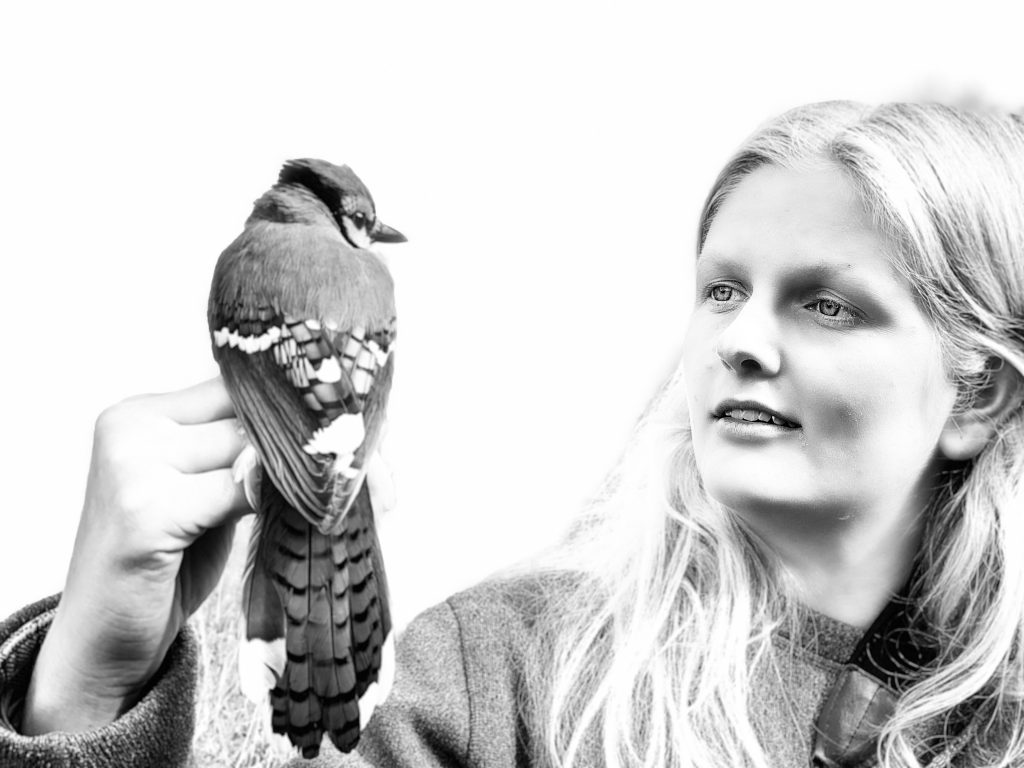
Rushton Woods Preserve is a place where people gather in celebration of abundance. Community Supported Agriculture (CSA) members gather for their share of the soil’s bounty each week, and myriad groups from the community, schools, and universities gather at the songbird banding station to witness the bounty of the sky. Much like the agricultural harvest, our bird catch follows seasonal patterns that can help a visitor (or bird bander) develop a deep connection to the rhythm set forth by Earth’s 23.5 degree tilt.
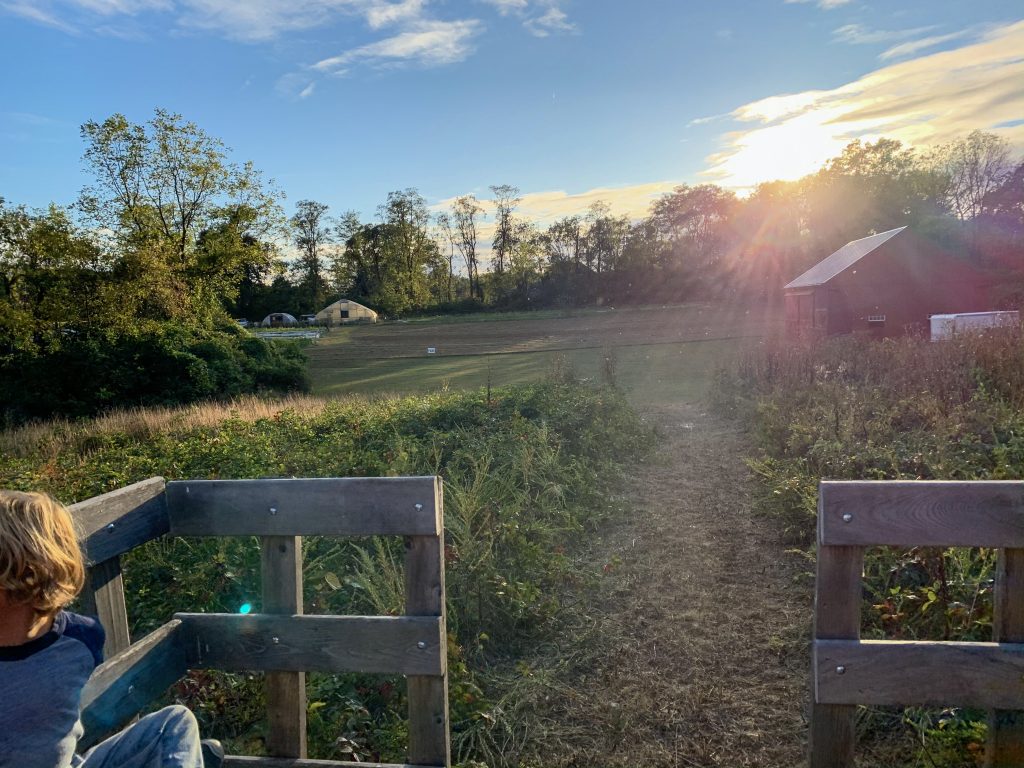
As this was my first year participating in the Rushton Farm CSA, I noticed some interesting correlations between the harvest and the catch. My favorite crisp spring vegetables like kale, radishes, turnips, broccoli, leeks, and little gem lettuces have all made an encore appearance now that the cool fall weather is here. These I liken to our butterflies of the bird world, the “special” warblers, that we can only expect to see during spring and fall migration: Black-throated Blue Warblers, Chestnut-sided Warblers, Magnolia Warblers, Northern Parulas, Black-and-white Warblers, and American Redstarts.
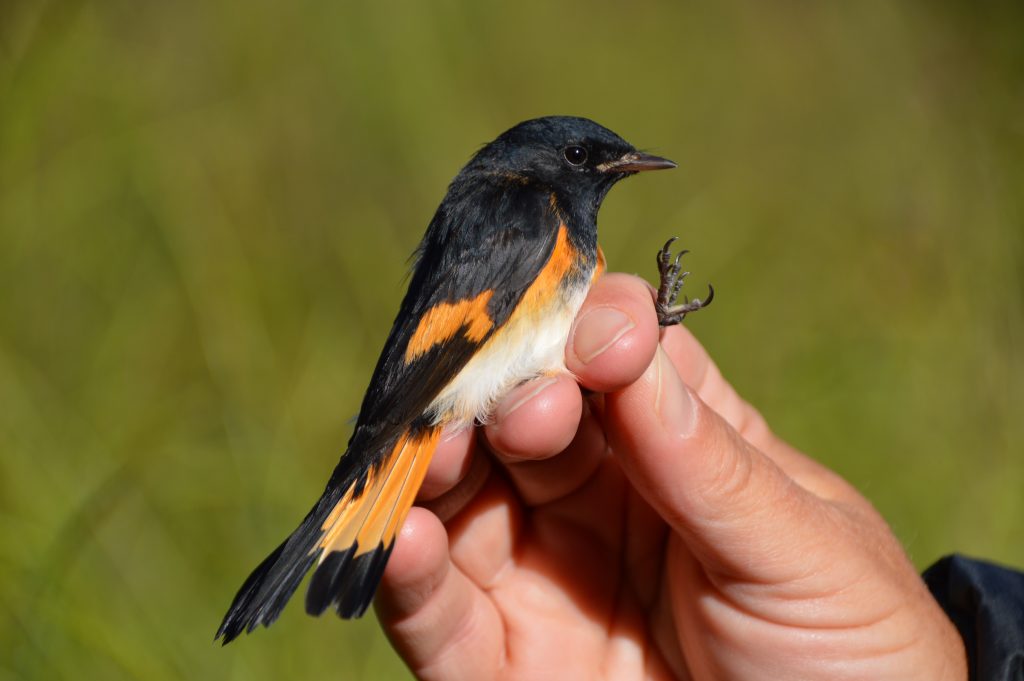
American Redstart banded in September. Photo by Blake Goll 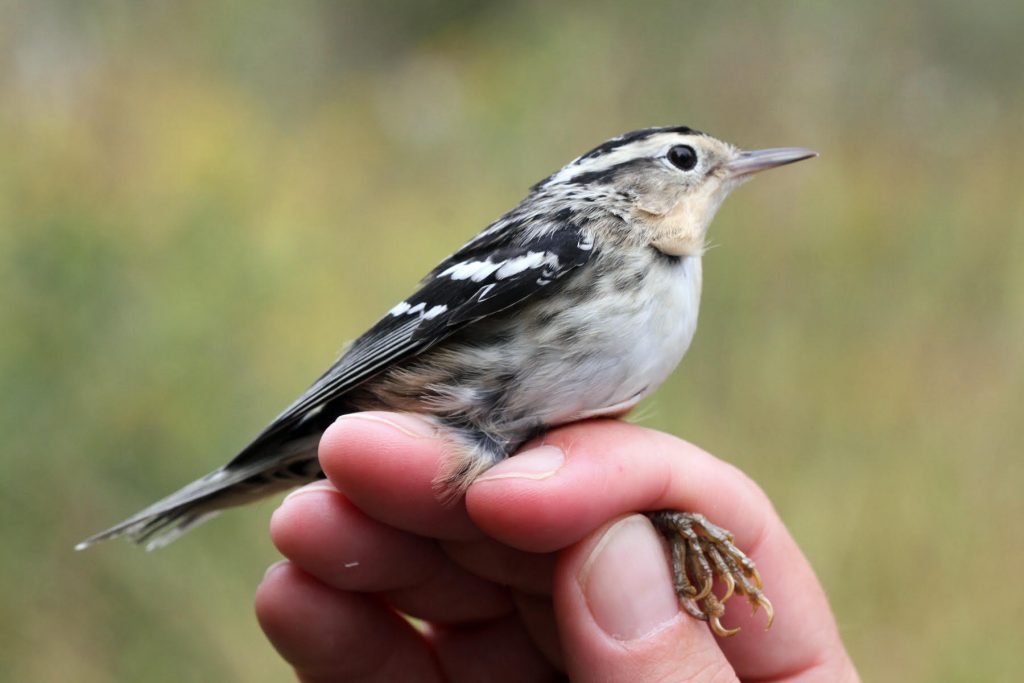
Black-and-white Warbler banded in October. Photo by Celeste Sheehan 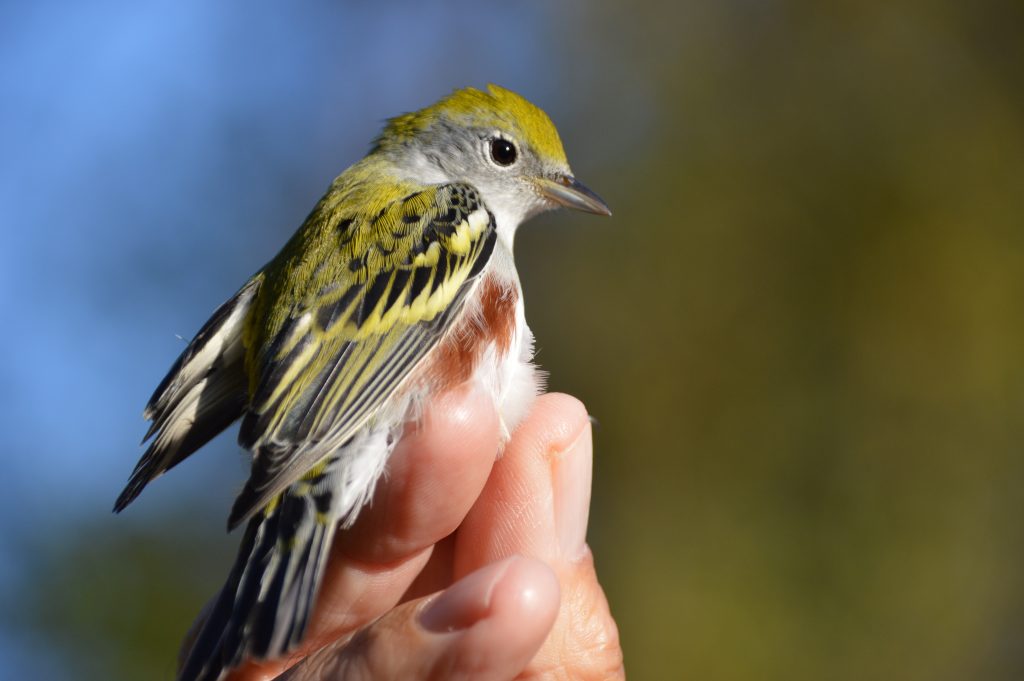
Male Chestnut-sided Warbler banded in September. Photo by Blake Goll 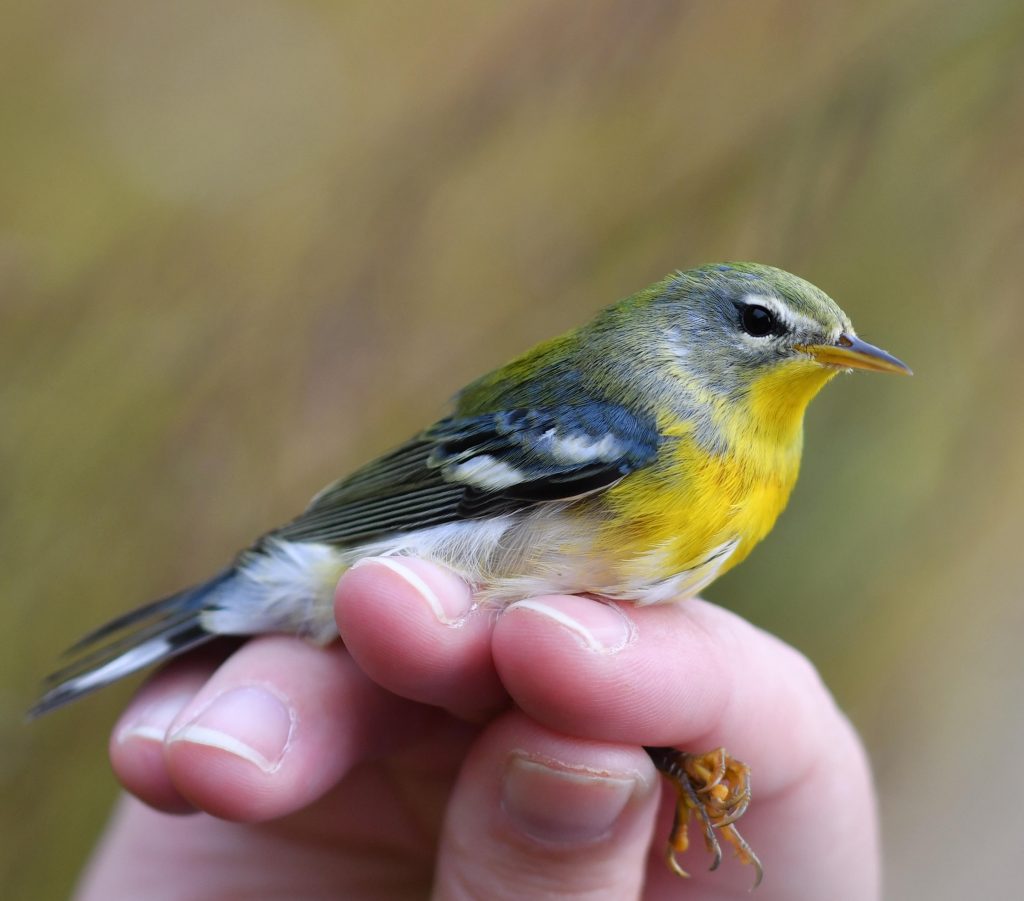
Northern Parula banded in September. Photo by Jim Moffett 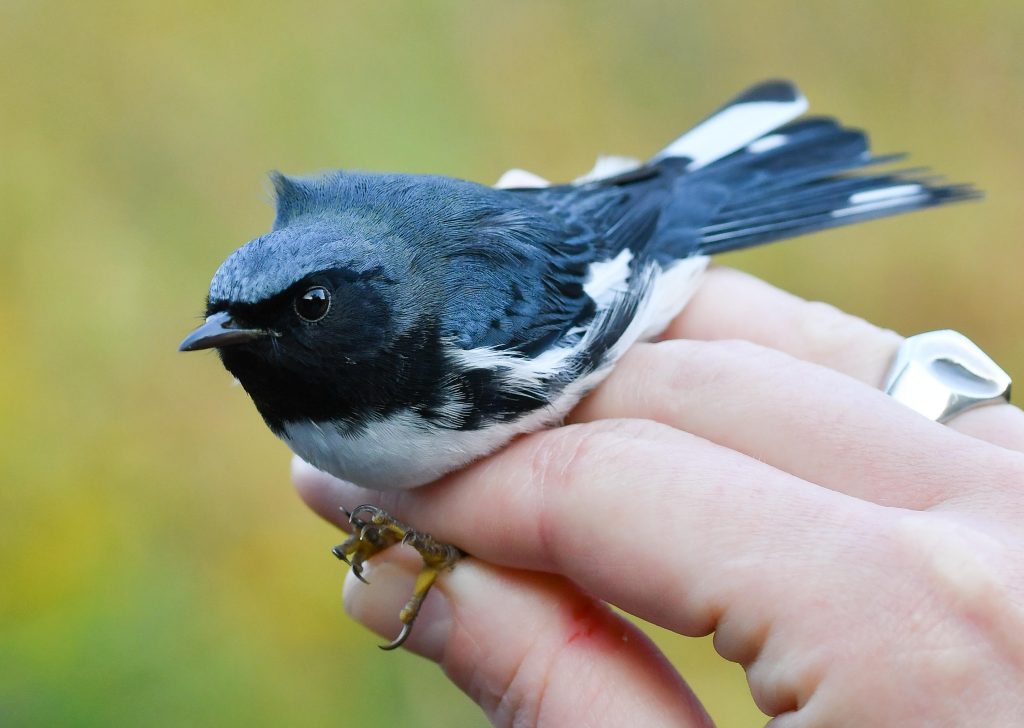
Black-throated Blue Warbler banded in September. Photo by Jim Moffett
Throughout the summer, I was overwhelmed with tomatoes and zucchini. These prolific crops mirror our common birds that breed at Rushton all summer long like Gray Catbirds and Common Yellowthroats. Catbirds are a bander’s tomatoes making up the bulk of our catch August through September; they even ironically dwindled in numbers at about the same time as the tomato harvest finally ended a couple of weeks ago. And just like the tomatoes, we miss them when they’re gone.
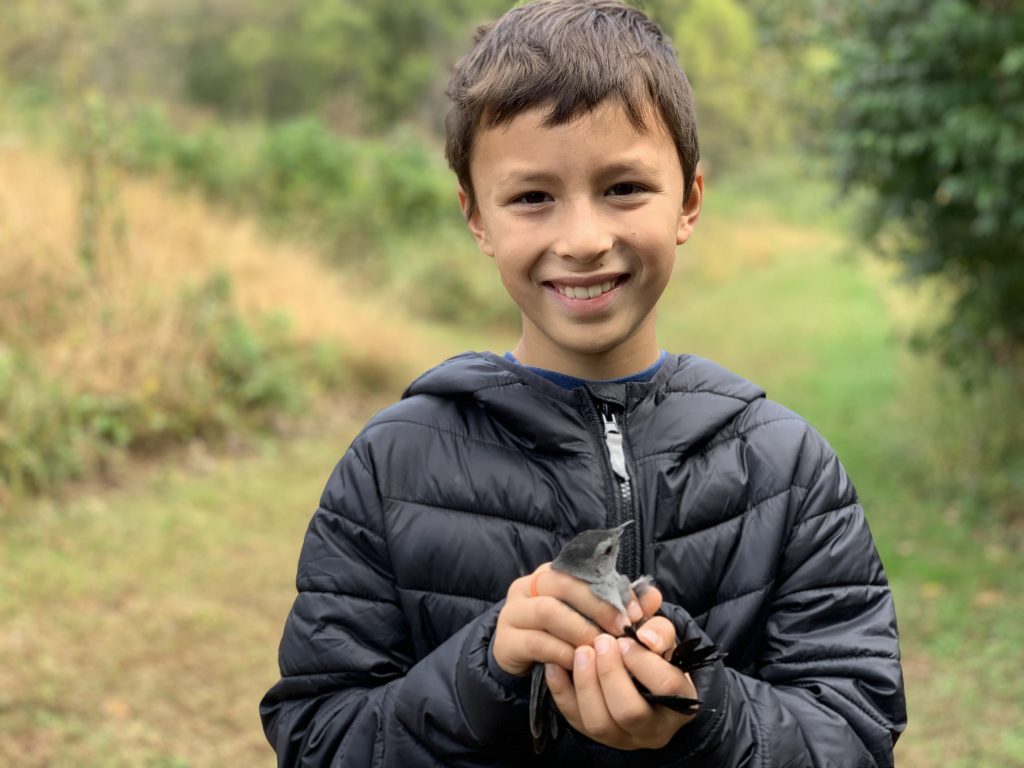
Now CSA members are enjoying the hardy winter produce like squash and sweet potatoes, while our avifauna has shifted to tough winter birds from the north like White-throated Sparrows, kinglets, and Hermit Thrush.
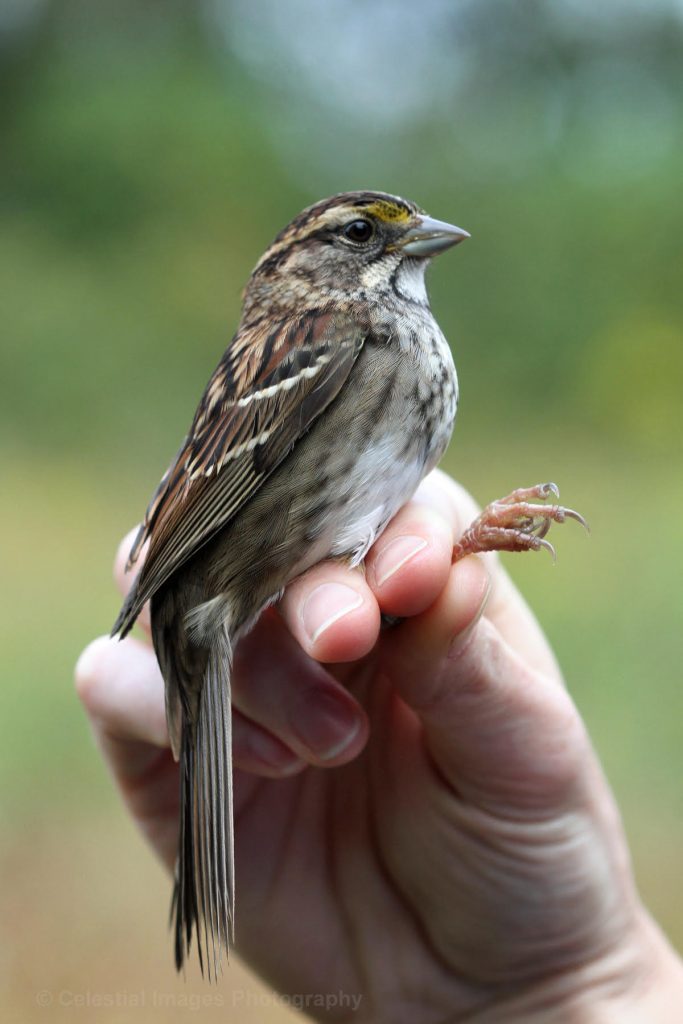
First White-throated Sparrow of the season (10/1) Photo by Celeste Sheehan 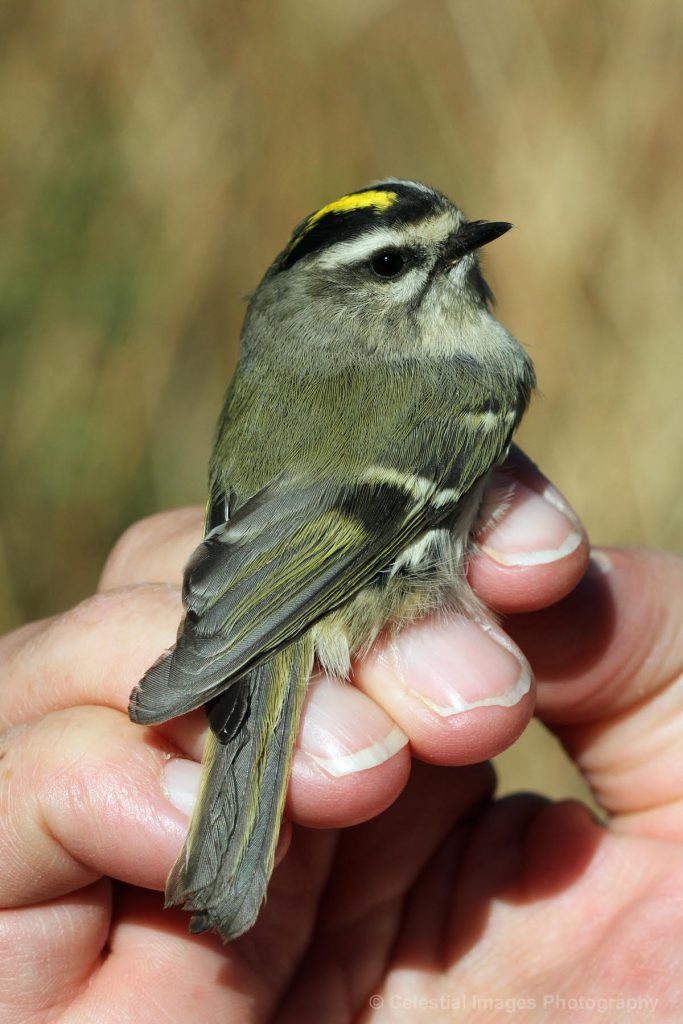
Golden-crowned Kinglet Oct 16th. Photo by Celeste Sheehan
Recent highlights include a young male Rose-breasted Grosbeak on October 10th, our third Yellow-breasted Chat on October 1st (thanks to our new reduced mowing regime), a couple of young female Sharp-shinned Hawks in September, and a young male Scarlet Tanager on September 23rd.
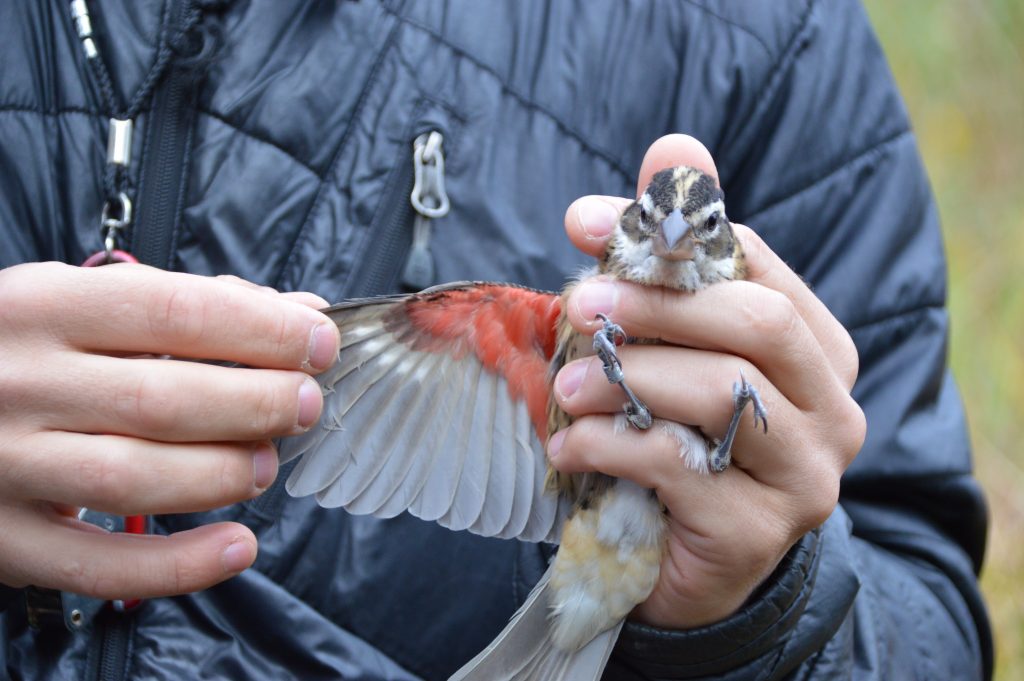
Rose-breasted Grosbeak banded October 10th. Photo by Blake Goll 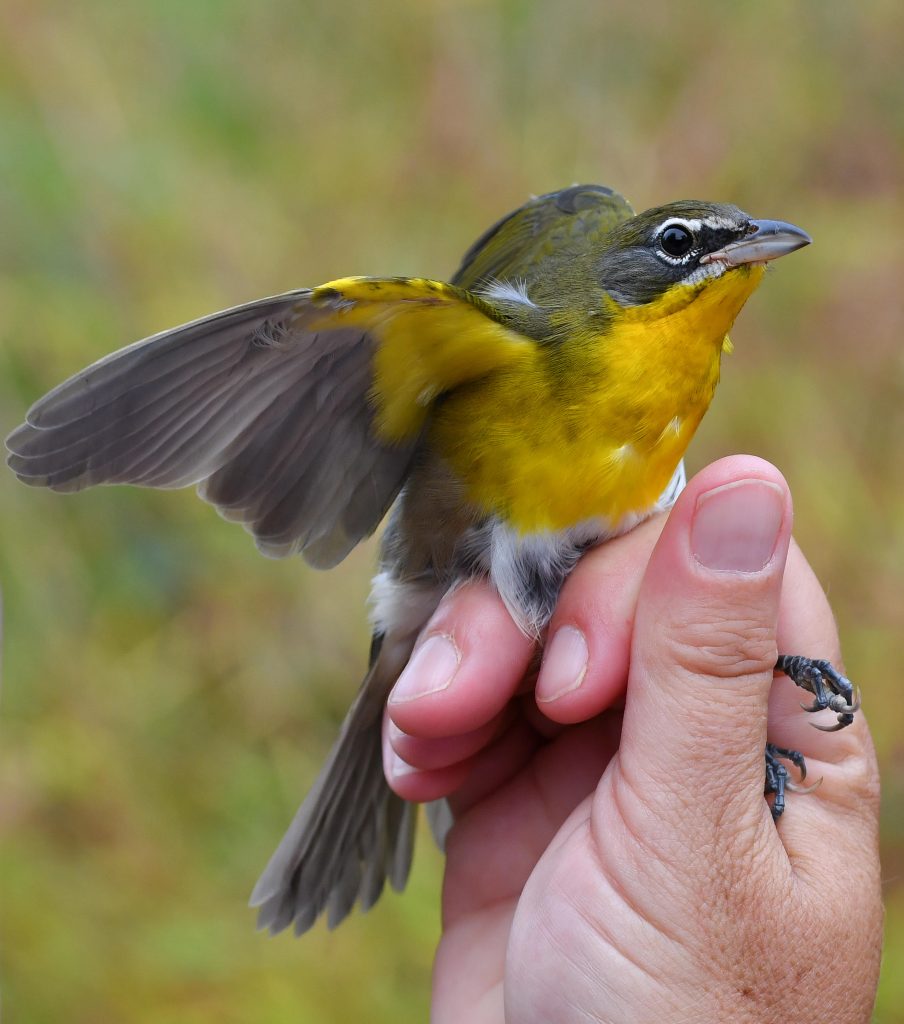
Yellow-breasted Chat (third of the season!) banded October 1. Photo by Jim Moffett.
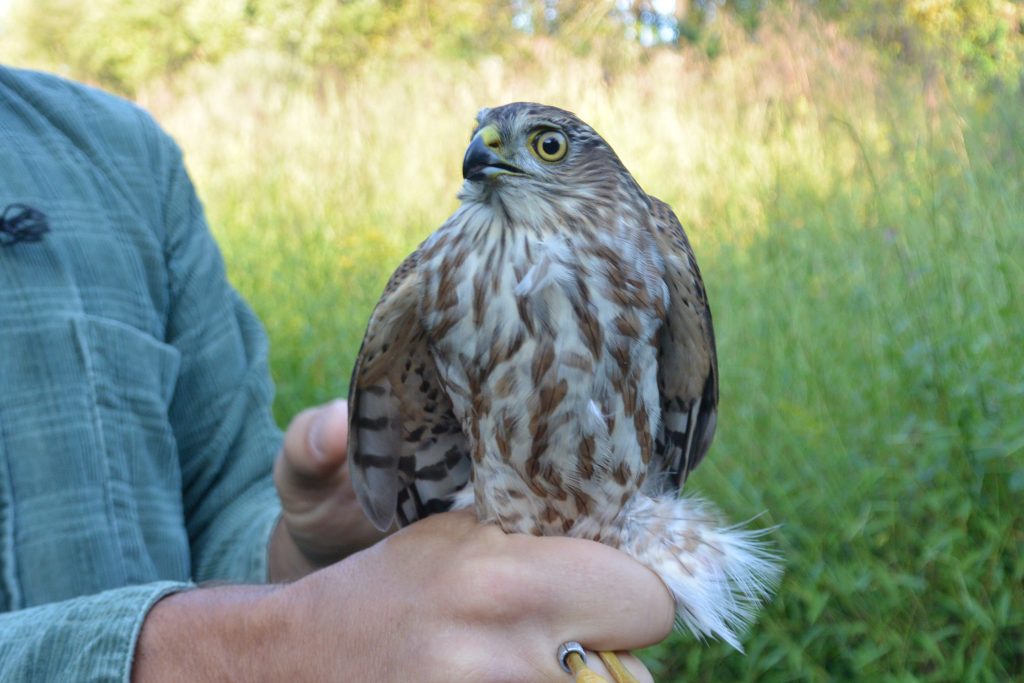
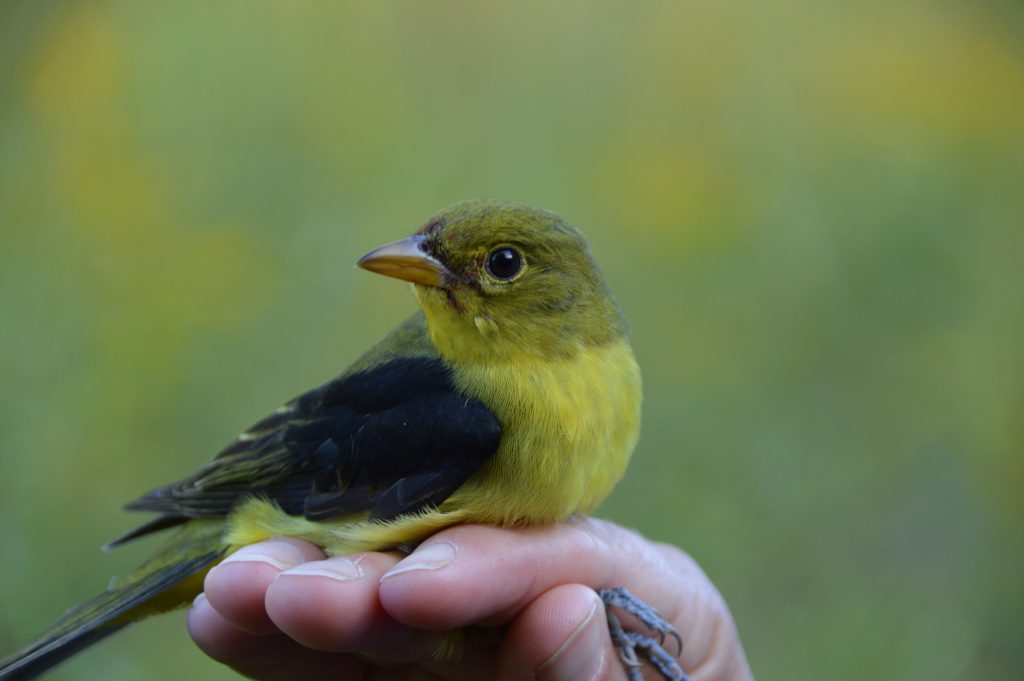
Black-throated Blue Warbler numbers are back up this year from our previous year’s alarming slump. One little female got our silverware on October 1st and decadently dined for five days, increasing her body weight by 22%. A handsome male Black-throated Blue checked in on October 10th as our one-thousandth bird of the season, making this fall our most productive yet by almost double our past records.
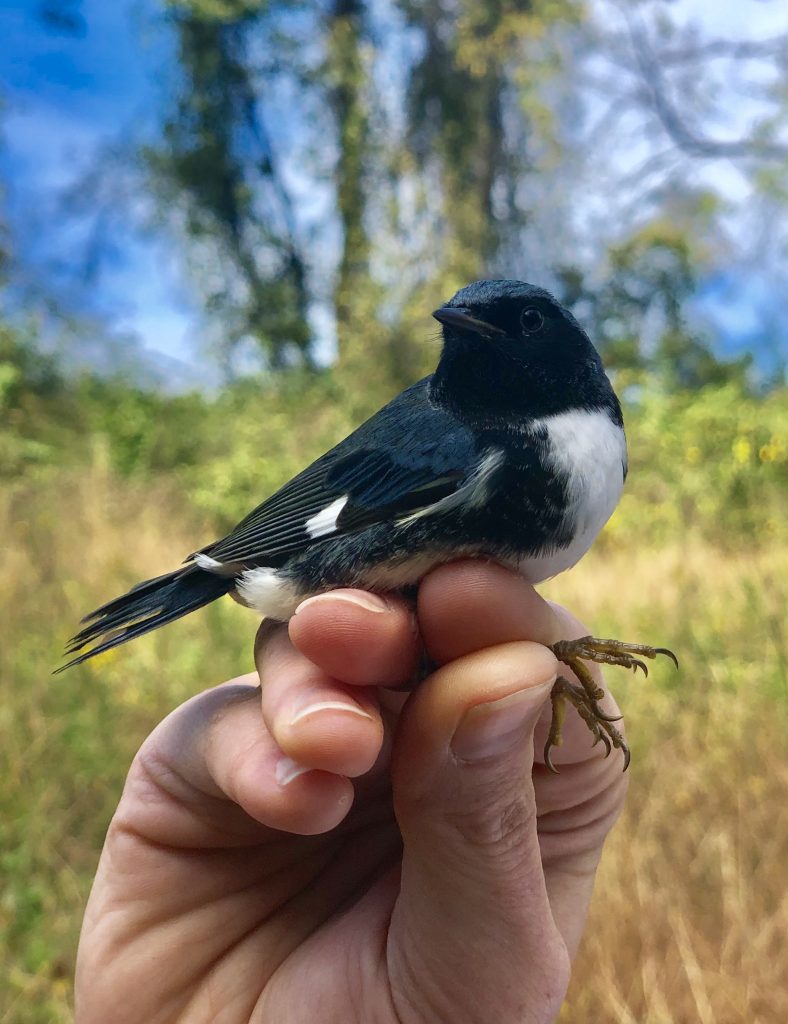
This local boom may seem peculiar in the wake of the recent article in Science, citing the devastating loss of 3 billion birds in the past 50 years as a result of habitat loss, pesticides, climate change, and other human threats. However, the majority of our birds are hatch year birds that have yet to complete the most perilous journey of their lives: their first migration in the Anthropocene. Thank goodness we can offer them temporary sanctuary within a community of people who care about open space and the abundance it supports.
There’s a lot going on in the woods,
Blake
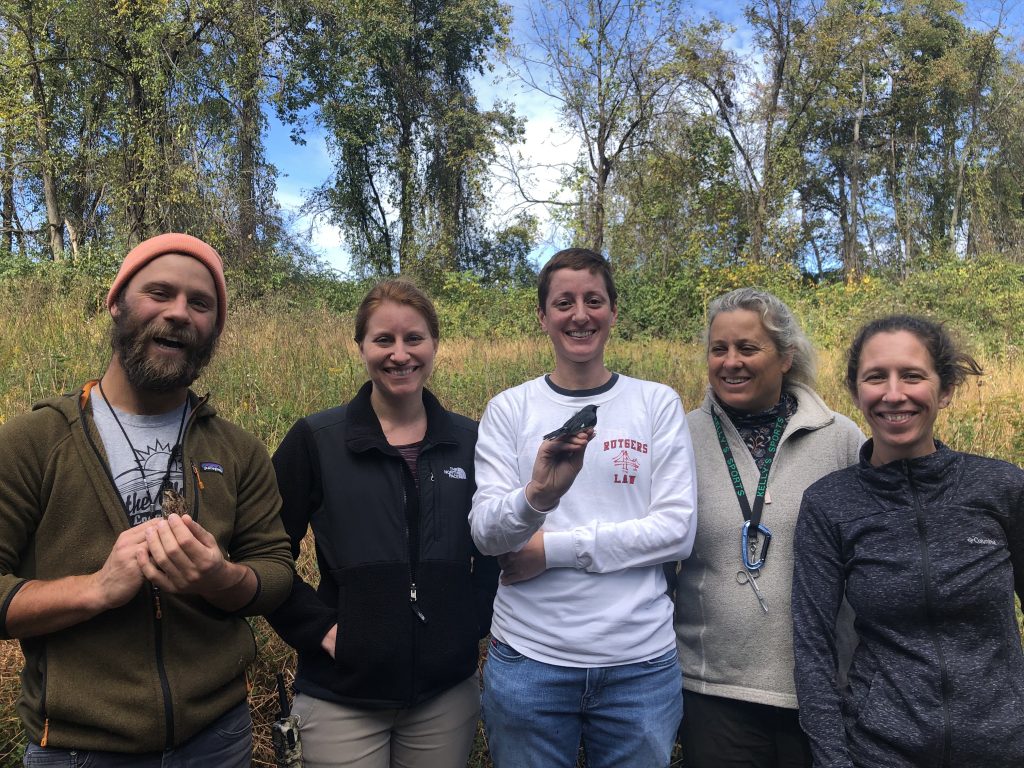
Plant-Based Living: Simple, Savory Soups and Sides
Join Rushton Farm CSA Member and Integrative Health and Nutrition Coach Sandra Gargus as she helps us kick-off the holiday cooking season by learning to prepare some plant-based recipes to keep us nourished and fulfilled. Using Rushton Farm produce and other locally-sourced ingredients, Sandra will help us plan delicious holiday menus. $50/person.
- 1
- 2
- 3
- 4
- Next Page »

